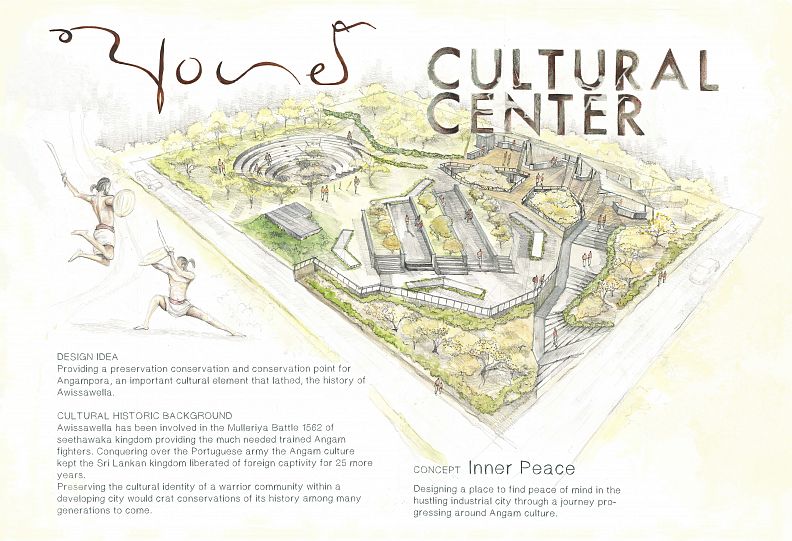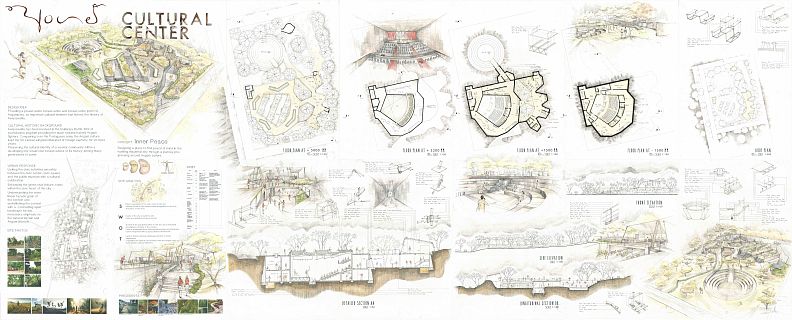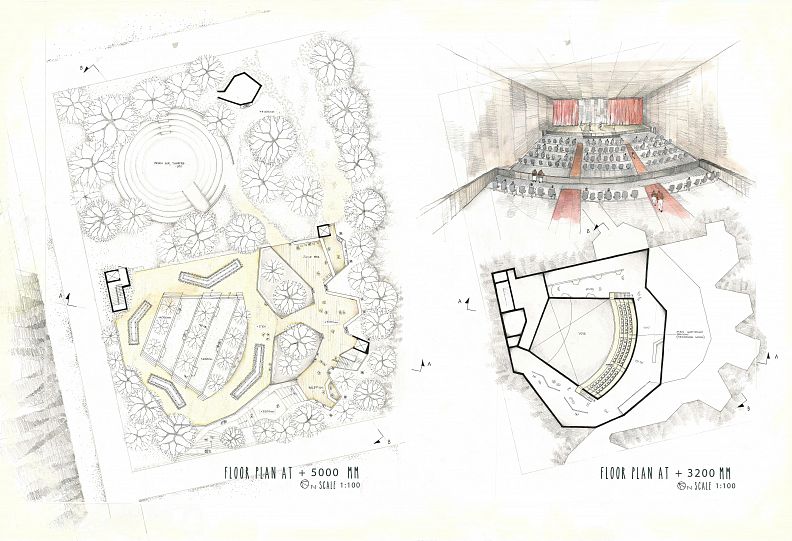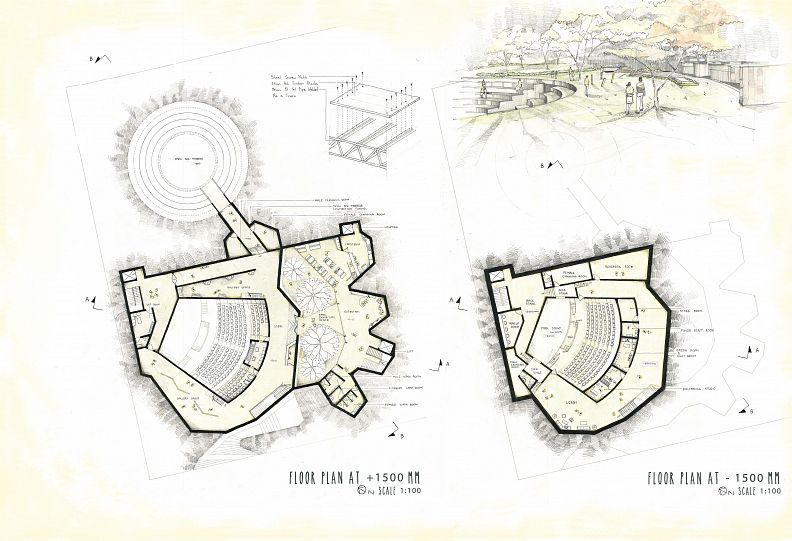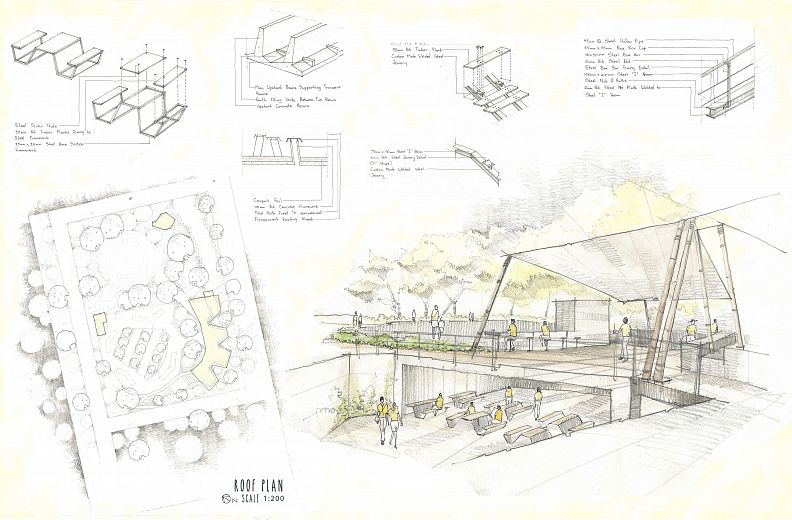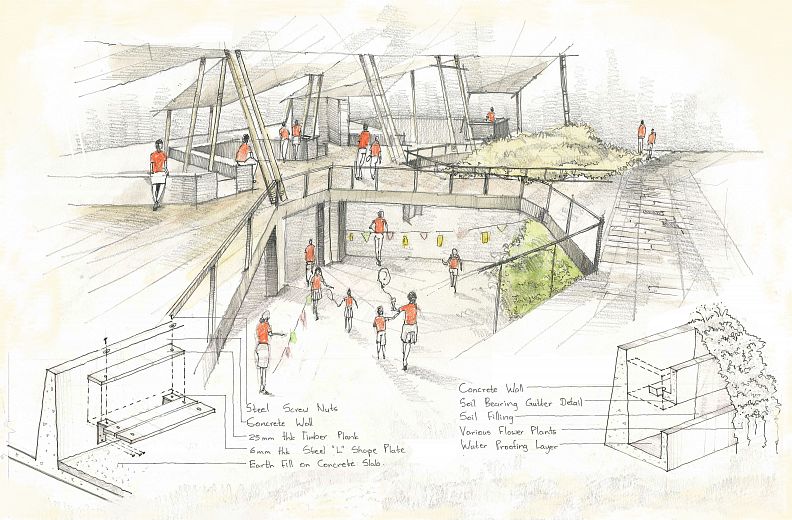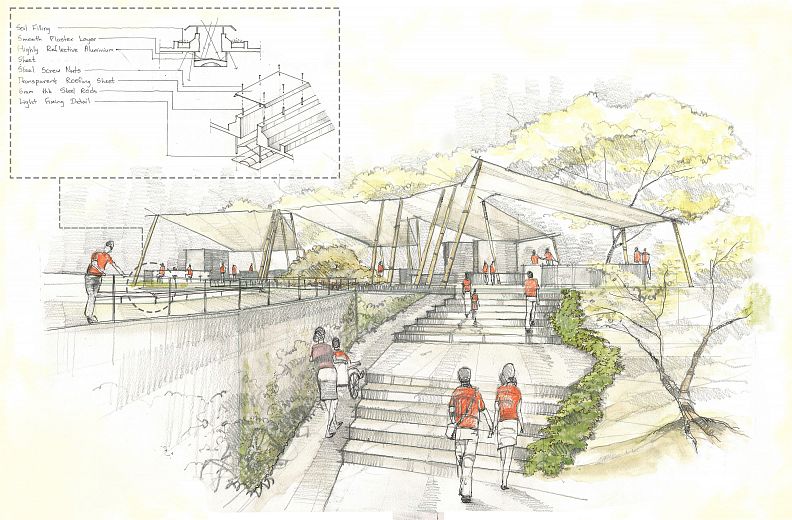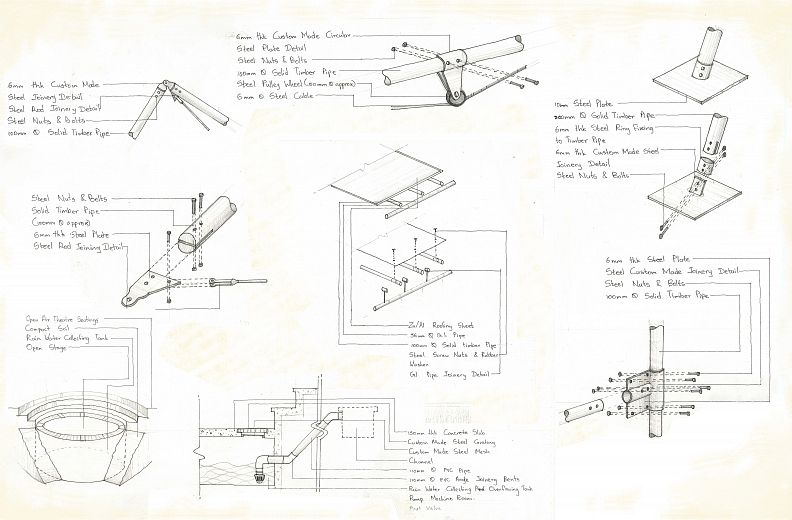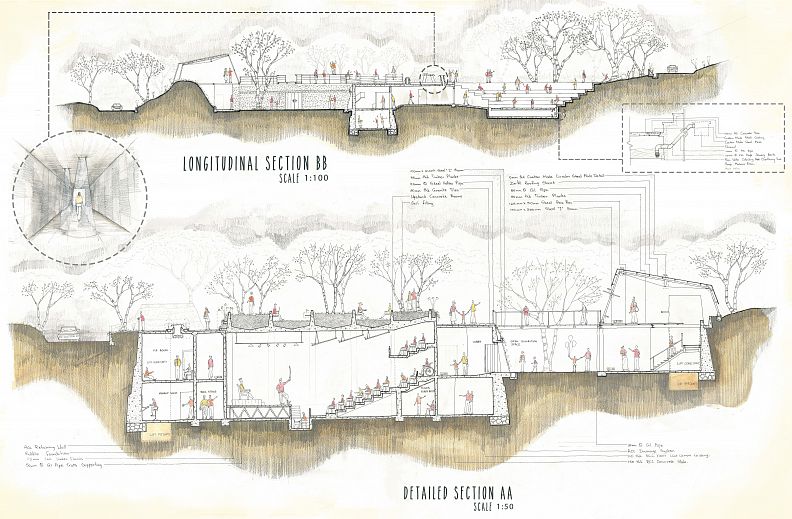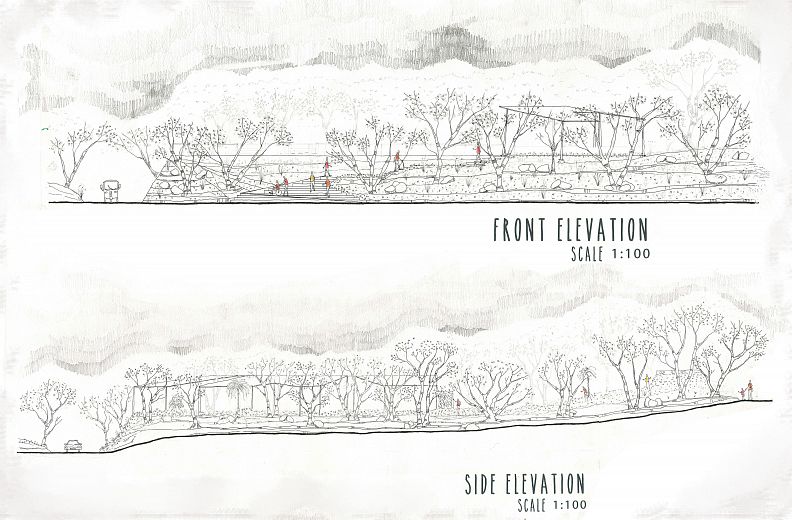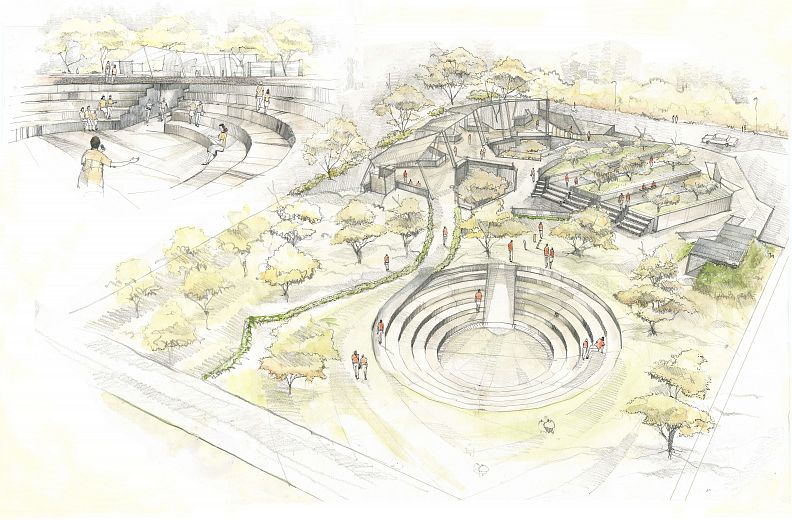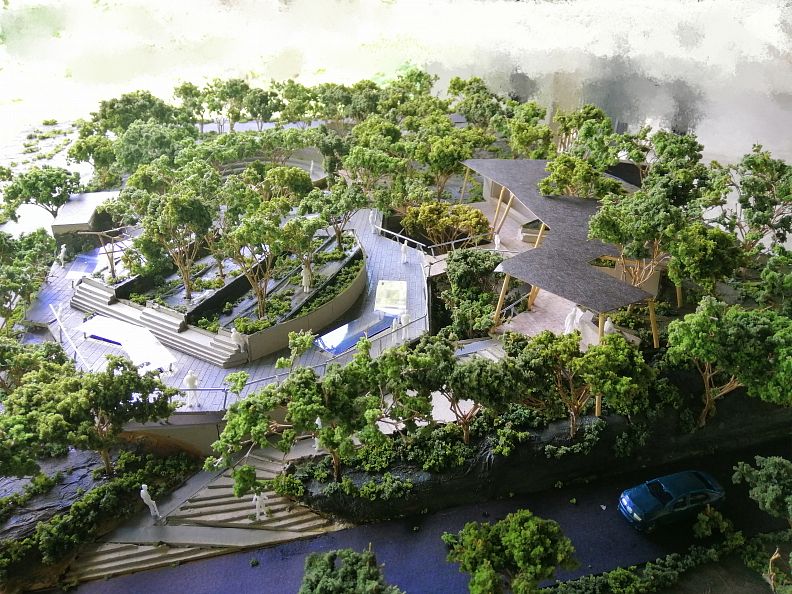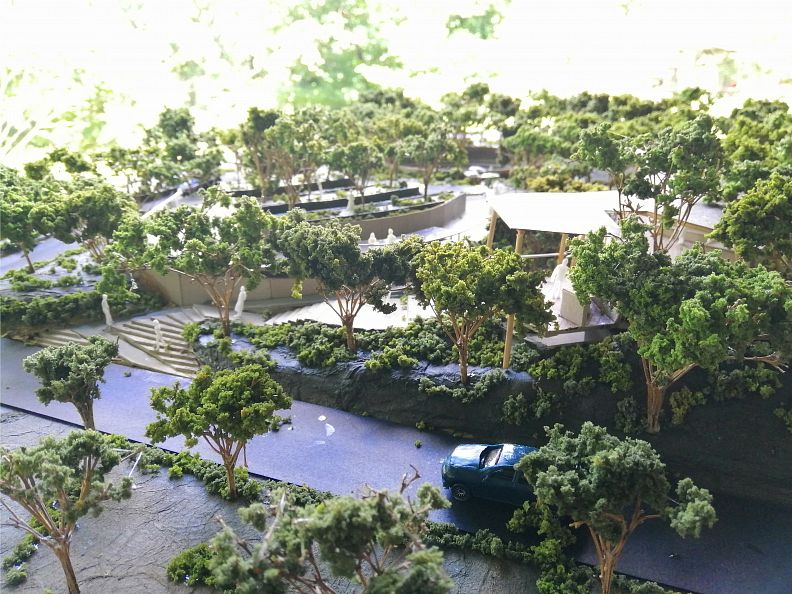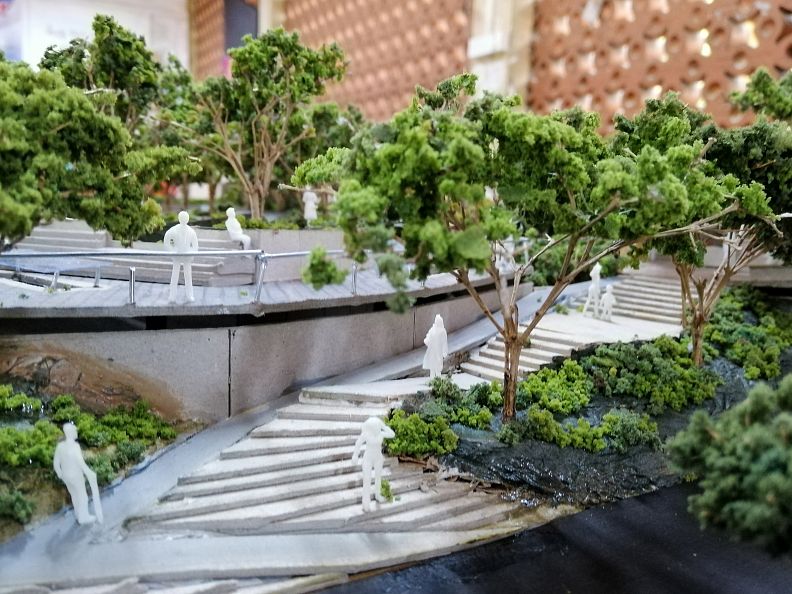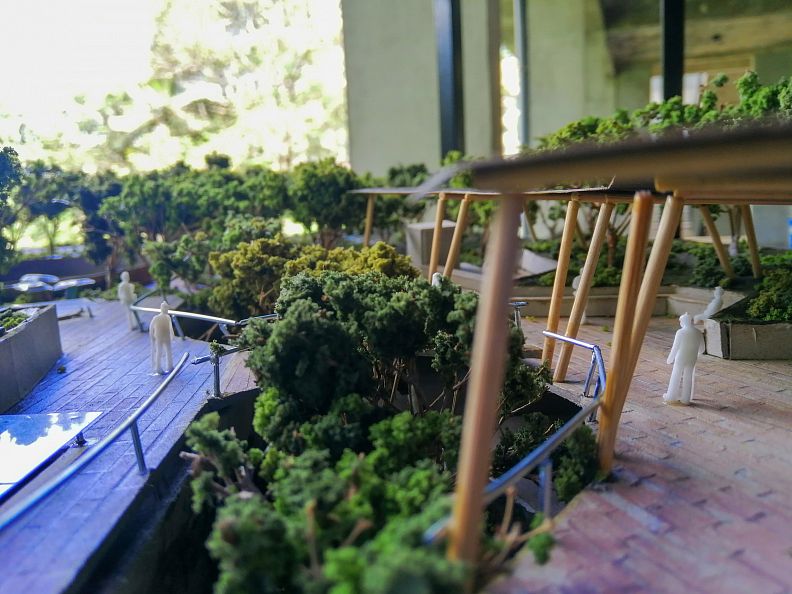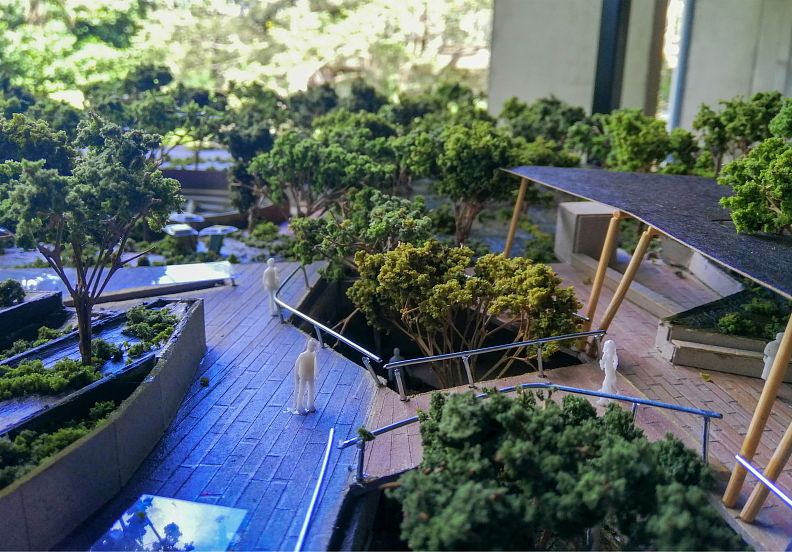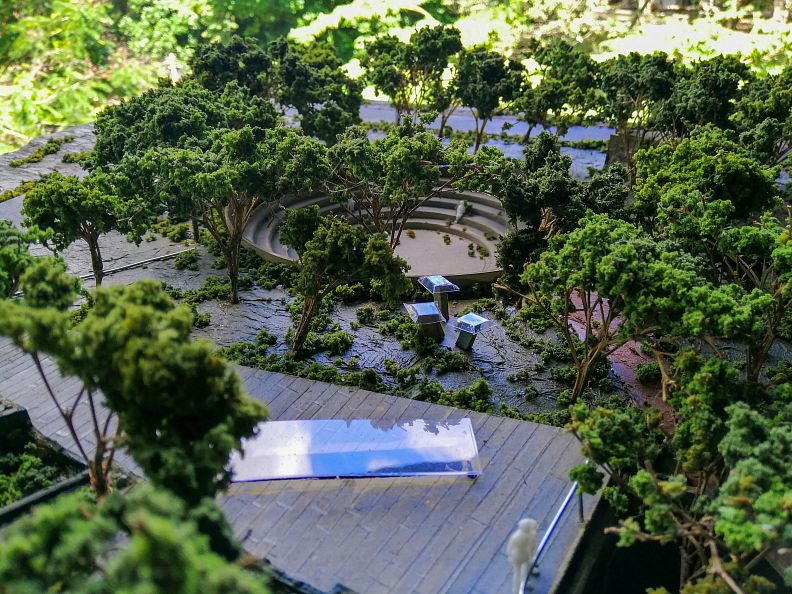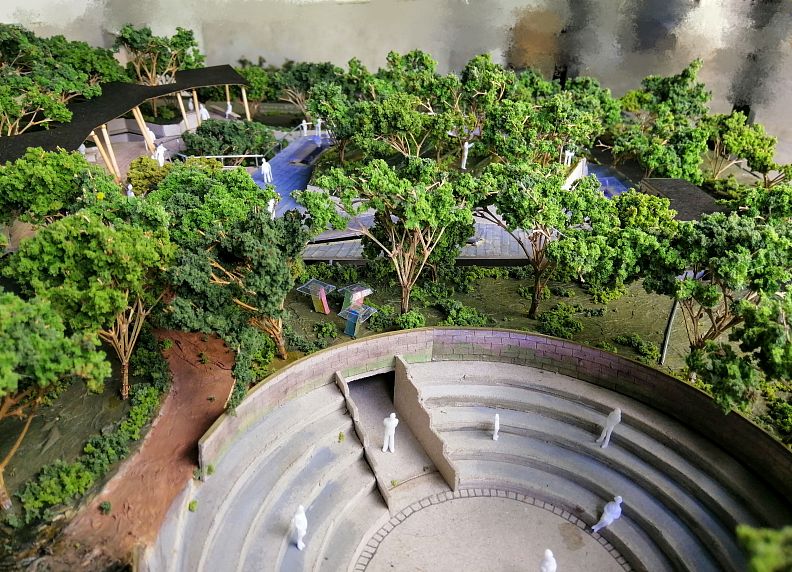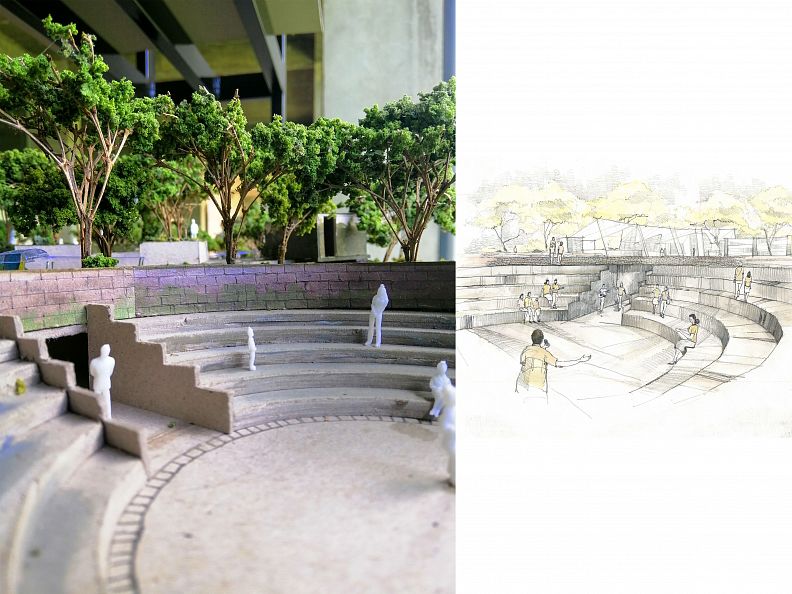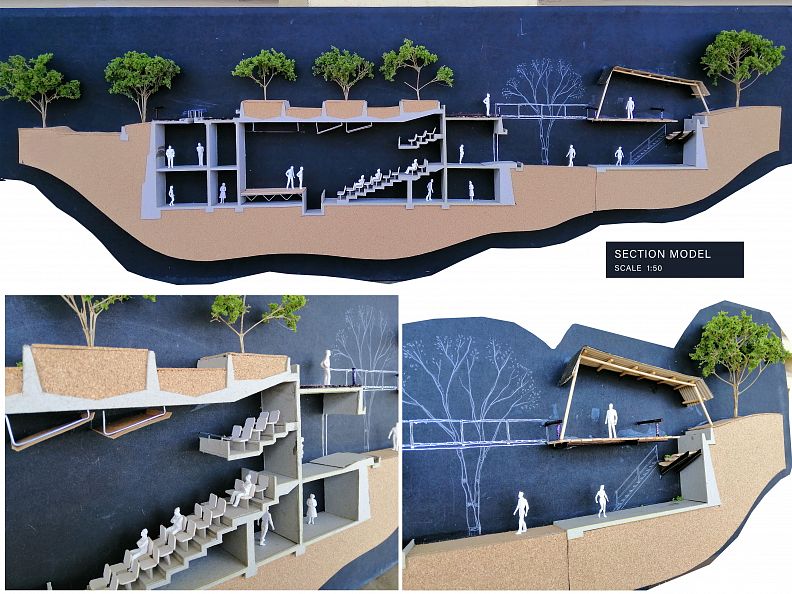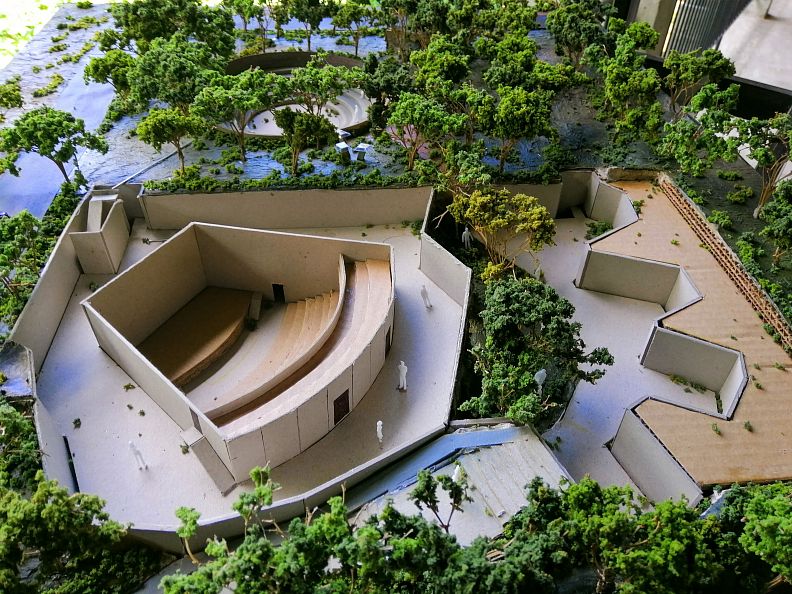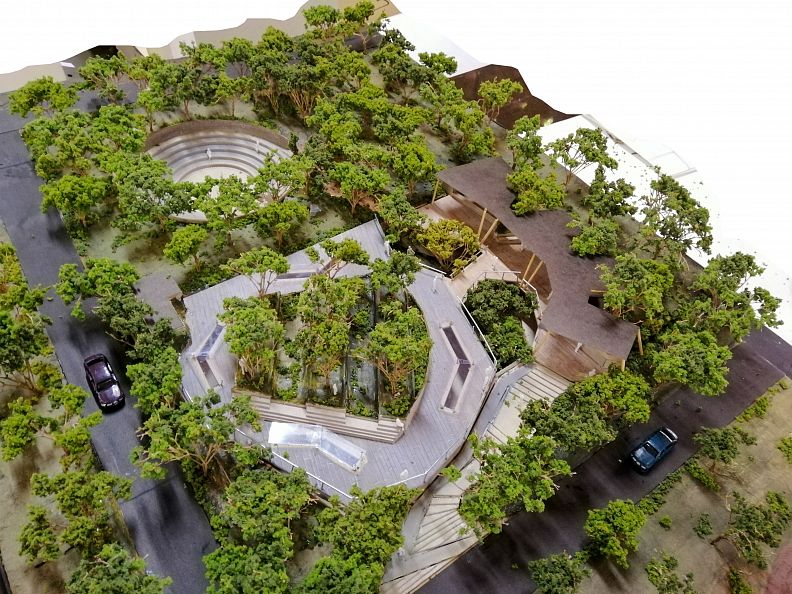"Angam" Cultural Center

Project idea
• “Angam” or “Angampora” is one of Sri Lanka’s ancient martial art forms, not known by many. The origins of the art span back to more than 30,000 years ago. But, by the time, generations have presented lack of interest to study this martial art form. Therefore, providing a preservation conservation and conservation point for “Angam”, would be important in protecting and educating people around the world about the culture and the importance of this Sri Lankan cultural element.
CULTURAL AND HISTORICAL BACKGROUND
Why is the city of “Awissavella” is Important to “Angam” culture?
• The city of Awissawella has been involved in the well-known great “Mulleriya Battle” in the 1562. This specific battle was won through the Sri Lankan practices of martial art, Sri Lankan war techniques and Sri Lankan defense practice expressed in “Angam”.
• Awissawella (Seethawaka Kingdom) has evidence for providing trained “Angam” fighters at the time of the past wars. Conquering over the Portuguese army the “Angam” culture kept the Sri Lankan kingdom liberated of foreign captivity for 25 more years.
• Preserving the cultural identity of the warrior community within a developing city would create conservations of its history among many generations to come in future.
LOCATION
• The city of Awissavella is a main hustling city which is located in the edge of the Colombo District. It has a rich natural topography that cannot be found in other areas of the Colombo district, Sri Lanka. The city also acts as a transportation hub in Colombo district that allows to reach any destination of the country within hours. Therefore, allowing easy access for local and foreign people to visit the centre make provisions for future expansions in the area. Moreover, it will support to spread the idea and knowledge in regards to “Angam” Cultural Centre around the world as well.
Project description
URBAN RESPONSE
• Linking the civic activities smoothly between the civic centre, civic square and the public museum with a cultural celebration.
• Enhancing the green civic leisure zones within the civic heart of the city.
• Understanding the stern linear façade grain of the context and embellishing the context with a contrasting open landscape for the necessary emphasis on the natural terrain and “Angam” lifestyle.
CONCEPT
Inner Peace
• Designing a place to find peace of mind in the hustling industrial city through a journey progressing around “Angam” culture.
SITE ANALYSIS
SWOT
Strengths
• direct connection to the civic, heart of the city
• Natural terrain of the context public magnetism to the civic structures of the area
Weaknesses
• Hustle of the city around the site
• Noise and pollution entering the site.
Opportunities
• Growth of the population inflow to the city due to industrial development scheme of the context.
• Lack of knowledge about Awissawella among new inhabitants can be responded with a good cultural conversation.
Threats
• Lack of interest among coming generations to study “Angam”
• Expanding the cultural conversation from the “Angam” roots to more modern cultural elements.
THE ANGAM CULTURAL CENTRE
• Enter through a proposed road on Colombo – Batticaloa main road, the design contrast among the tight build space which lashed lush greenery it holds. While being emphasis the green patch among through the city it also provides the necessary environment to practice the “Angam” defence art. The natural landscape is an important component to the “Angam” lifestyle that should not be omitted in creating a cultural center oriented around the city. Using open ground for solid buildings of the given scale should not allow the natural environment expected for the defense art. Therefore, the ground level was aalocated for rather natural practice area.
• The visitors will be welcome to the large open pavilion which houses the reception and where they can gather. End of the pavilion is a juice bar that sells more traditional and herbal beverages. Visitors from the main pavilion can either choose to enter the main auditorium roof garden which contains a natural pocket parks, where they can enjoy as friends or as families. Either, they can enter the large garden space with the open-air theatre.
• Then, from the pavilion visitors will guide towards the bottom part of the building that houses the exhibition spaces. Once the visitors or artisans guided to the exhibition space, they can see the exhibition extension space which is for open exhibitions. It helps to practically connect the artisans and the process of their work with the visitors. The open exhibition space is almost with special elements of seasonally celebrating, cultural and religious festivals and festivities such as Sinhala festivals, Christmas, Vesak, Pongal, New Year celebrations, etc.
• Moreover, this open space allows to make an exciting get in space for the Main Auditorium of the central as well.
• The pinnacle of the design is the open-air theatre which can access from both levels. This indicates the “Ura Linda” (battle arena) in “Angam” culture which is the fatal battle ground. The underground tunnel functions as a service connection for performance and service provide for the open-air theatre. On the ground level visitors can enter to relax in greenery or to see the performance on the open-air theatre through the open pavilion.
• The gradual journey through the center makes initiation to heal the people, to make inner peace of the people who are coming from the busy urban environment in the city.
Technical information
• The main structural elements are concrete and steel. The main structural part of the design is the large span garden roof on top of the main auditorium. To keep the structural stability and to make the large span without any columns or down faced beams inside the auditorium to reduce the visual disturbance, it has used the upstand concrete beams.
• The same architectural language has used to make the unique accessories and unique furniture designs in the building.
